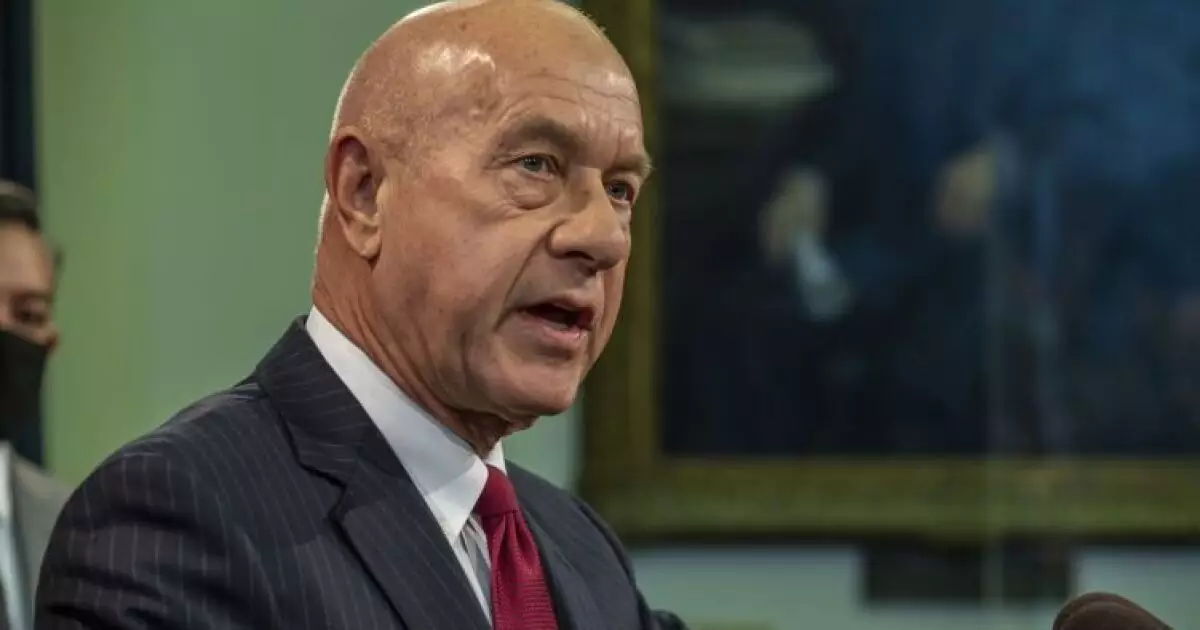The city of Houston, despite its vibrant growth and economic opportunities, finds itself entangled in a costly battle over infrastructure funding that exposes a looming financial crisis. Mayor John Whitmire’s recent announcement regarding an agreement to redirect at least $100 million in property tax revenue annually is a desperate attempt to mend the cracks in a sinking budget. How did we reach a point where legal hurdles dictate the city’s financial health, leaving residents to wonder about the long-term implications of these financial maneuvers?
The lawsuit, initiated in 2019, questioned the city’s capacity to allocate a portion of property tax revenue to a drainage and street renewal fund. This legal tussle has far-reaching consequences; it has seemingly forced the administration into a corner, compelling them to promise larger allocations year by year—reaching from a pitiful 57% of the dedicated funds to a staggering 100% over the next few years. This may sound like a victory for residents, but peeling back the layers of this settlement reveals a rather alarming fiscal oversight.
A Budgeting Gamble
Mayor Whitmire’s claims of steering the city toward a healthier budget ring hollow when we observe the figures laid bare by city officials. With a projected structural deficit ballooning to a staggering $320 million, it raises serious questions about fiscal responsibility and planning. While the allocation of funds to repair infrastructure—an undeniably critical need, especially given the aging state of Houston’s roads—seems commendable, one must ask: at what cost? A shotgun approach to deficit resolution is more likely to aggravate the city’s financial woes, leading to a perilous cycle of culpability.
As the city council expresses excitement over these developments, a closer analysis reveals an unsettling disconnection between political optimism and financial realism. Proud declarations of addressing infrastructural deficits do little to dispel fears that the root of the problem remains unaddressed. What use are improved roads if the city continues to spiral into budgetary dysfunction?
Implications for Houston’s Future
The recent downward trending balance of Houston’s budget—from nearly $349 million in December to just $228 million in February—has understandably caught the attention of market analysts and rating agencies. Such a slide raises eyebrows and compels agencies like Fitch Ratings and S&P Global to downgrade their outlooks on the city’s financial stability. This worrying trend isn’t merely a statistical blunder; it signifies a looming fiscal catastrophe that bites harder when one considers how systemic issues often lead to long-lasting repercussions.
Houston’s reliance on a Texas bill that plans to allocate 30% of excess Harris County Toll Road Authority revenue as a potential financial anchor reflects a kind of desperation in financial strategy. The city is not just grasping at straws; it’s positioning itself for reliance on potentially unreliable external funding streams in an era where sound fiscal management is paramount. While this move may provide temporary relief, sustainable solutions will demand both innovative thinking and disciplined fiscal governance.
The outlook for Houston—a city with infinite potential—appears marred by political expediency and legal entanglements. Without a robust plan to holistically address its financial mismanagement, the promise of progress feels more like a mirage in the desert of dwindling resources. Houston deserves better, and the current governing bodies must realize that their decisions will dictate how the city navigates its future.

